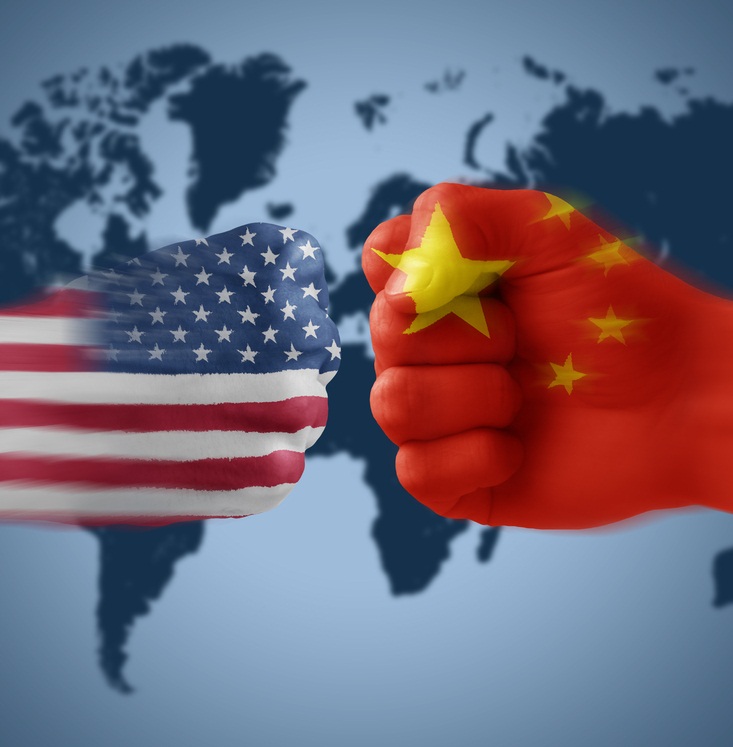

The trade war between China and the Western world (most notably the United States), continues to escalate.
Earlier this week China abruptly ordered export restrictions on two elements critical for manufacturing semiconductors and communications equipment, following the latest round of US-led moves to prevent Beijing from advancing its own chipmaking industry.
Now a former commerce minister and trade policy adviser has warned that Beijing’s retaliation is just a start in the dispute.
China’s Ministry of Commerce on Monday announced that gallium and germanium would be subject to export restrictions to “safeguard national security and interests”.
From 1 August exporters will be obliged to apply to the ministry for permits, and will have to supply information about end users and how the materials will be used.
Approval from China’s cabinet, the State Council, will be required “for the export of items listed in this announcement that have a significant impact on national security”, the ministry said.
Firms found violating the controls could face administrative punishment or even criminal charges, it said.
Gallium nitride is widely used in 5G base stations, military radar systems and increasingly in electric vehicle chargers, while gallium arsenide is used in wireless communications and lasers.
Germanium is widely used in fibre-optic cables, solar panels and LEDs, as well as military thermal imaging cameras.
The controls follow the Netherlands’ latest round of trade restrictions on high-end semiconductor manufacturing tools, which are likely to prevent firms such as ASML from shipping certain equipment to Chinese customers.
Now an influential Chinese trade policy adviser has warned that China’s export controls will not be the end of the retaliation from Beijing.
Reuters reported that on Wednesday, former Vice Commerce Minister Wei Jianguo told the China Daily newspaper that countries should brace for more should they continue to pressure China, describing the controls as a “well-thought-out heavy punch” and “just a start.”
“If restrictions targeting China’s high-technology sector continue then countermeasures will escalate,” Wei, vice commerce minister 2003-2008 and now vice chairman of China Center for International Economic Exchanges, a state-backed think tank reportedly said.
The Global Times state media tabloid, in a separate editorial published late on Tuesday, meanwhile said it was a “practical way” of telling the United States and its allies that their efforts to stop China procuring more advanced technology was a “miscalculation.”
The move comes days before a visit from US Treasury Secretary Janet Yellen to Beijing.
Reuters reported that analysts have indicated that the export controls were clearly timed to send a message to the Biden administration.
And China’s move has also raised concerns that restrictions on rare earth exports could follow.
China it should be noted is the world’s biggest producer of rare earths – a group of metals used in EVs and military equipment.
This makes the discovery in January this year by the Swedish mining company LKAB of the largest rare earth deposit in Europe increasingly vital.
The US had announced its sweeping export controls for semiconductor manufacturing equipment to China in October 2022, and the Netherlands had announced in early March that it too would restrict the export of the chip making kit to China.
Japan then joined the United States and the Netherlands when it said it would restrict exports of 23 types of semiconductor manufacturing equipment going forward (without naming China directly).
The US, the Netherlands and Japan are the only three countries that are home to manufacturers of advanced machines to print microchips.
ASML this year revealed that it had suffered a data theft of its IP – by a former employee located in China.
It should be noted that China has already begun its own counter-measures against these Western moves.
In April China urged the World Trade Organisation (WTO) to scrutinise US-led technology export restrictions, and said it would “take decisive measures to safeguard its rights and interests” after Japan joined chip restrictions.
Then in May Beijing banned some key domestic industries from purchasing chips from US memory chipmaker Micron, warning they were a national security risk.
Later that same month, Chinese Commerce Minister Wang Wentao urged Japan to halt its semiconductor export controls, calling it a “wrongdoing” that “seriously violated” international economic and trade rules.
AI is transforming cybersecurity, offering faster defence and smarter attacks. Learn how businesses can harness…
Search engine giant being sued for £5 billion ($6.64 billion) damages over allegations for online…
H20 chip designed for Chinese market now requires special export licence, as Trump Administration tightens…
Apple reportedly working on lighter, cheaper Vision Pro, another model that links directly to Mac…
OpenAI says GPT-4.1 model family can understand prompts with up to 1 million tokens, features…
Blue Origin jaunt sends Jeff Bezos fiancée Lauren Sanchez into space along with Katy Perry…